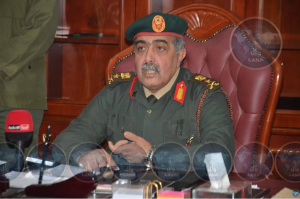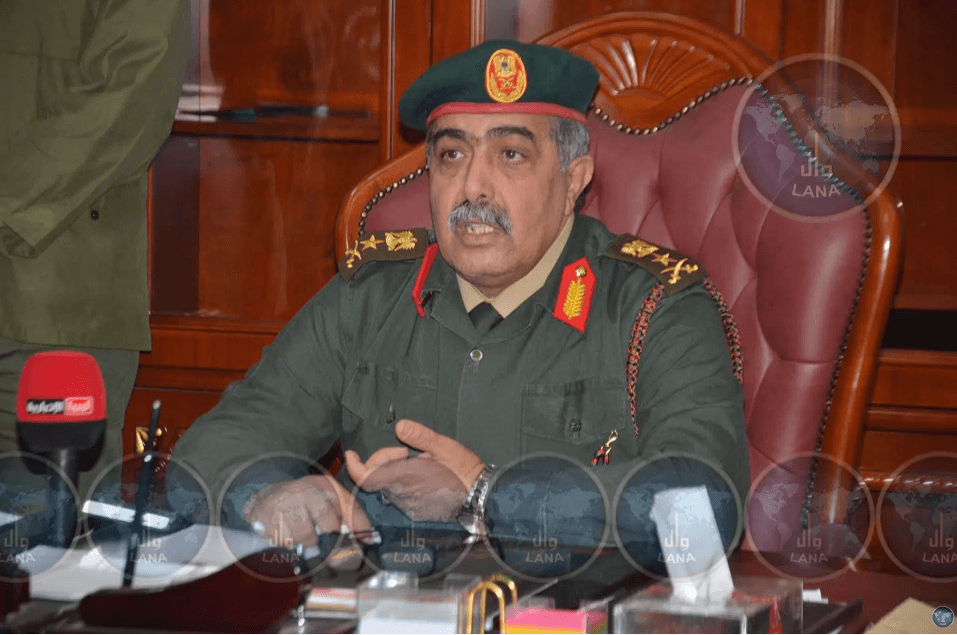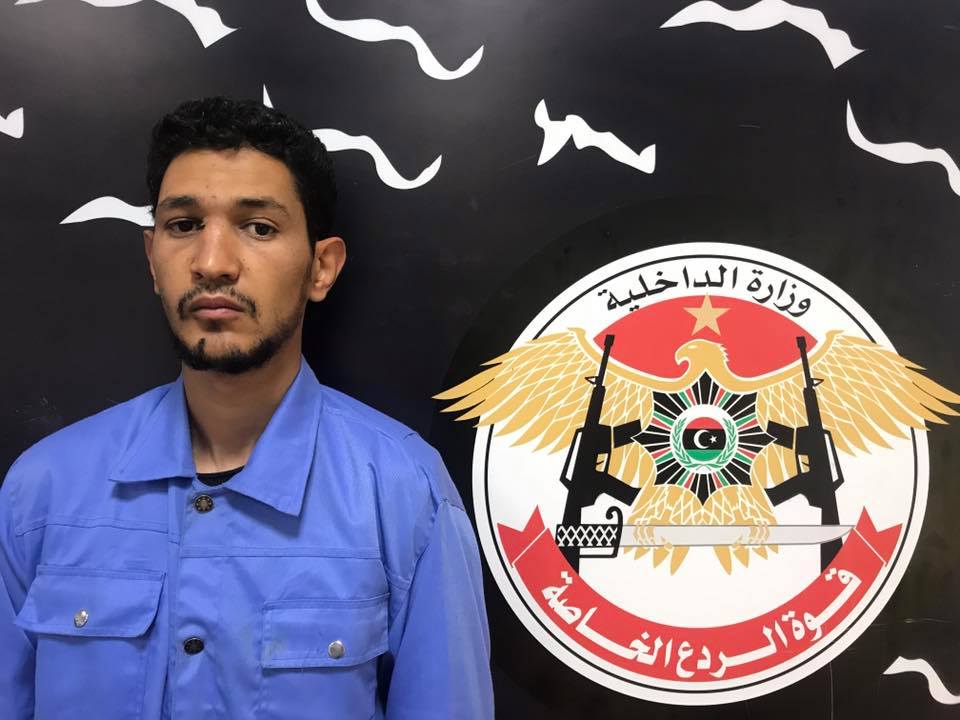By Libya Herald reporter.

Tunis, 6 December 2017:
The Libyan National Army’s Chief of Staff has vowed to strike with an “iron hand” any growth in organised crime in Benghazi.
Major-General Abdul Razzaq Al-Nazhuri is seen as responding to increasing concerns in the city that with the war against militants over, except for some snipping in Sidi Akribish, armed young men are increasingly turning to crime to fill their pockets. There has been a reported growth in kidnapping for ransom and armed robberies.
Ten days ago, in similar vein, Wanis Bukhamada, the head of Saiqa Special Forces and now in charge of the new central operations room, insisted that criminals in the city would not be tolerated and would be severely punished. The city was going to improve, he promised.
Today’s statement by Nazhuri was made during a meeting with Bukhamada and other members of the central operations room.
The murder of 9-year-old Abdul Raouf Ali Ojali just over a fortnight ago after he was kidnapped and a ransom demand of LD 2 million made, and then the kidnapping of the manager of National Development Company, Salah Bugrain, a few days later, shocked Benghazinos profoundly, triggering fears that the city was heading in the same lawless direction as Tripoli.
In his declaration today, Nazhuri said he would not allow these “gangs” to harass residents with their crimes. Libya had to be safe day and night, he declared. In his capacity as military governor from Ben Jawad to Derna, he gave the security services the power to arrest those suspected of operating outside of the law. Legal action would then be taken after arrest he added.
However, he described rumours that Benghazi lacked security a “disgrace” and said the proliferation of such news was simply not true.
“Criminality is found all over the world, even in stable countries” with effective intelligence agencies, he argued. Benghazi had recently emerged from a devastating war but officials were working “with all our strength” to make sure the city prospered.
“We are now working to serve the citizens. We do not want anyone to usurp the people’s houses or land,” he said. As to claims on property, these had to be followed using legal and officials measures he added.
Here he was referring to private and state property being seized by individuals – something Bukhamada had also insisted had to stop.
Nazhuri ended his speech conceding that security forces lacked resources but that, despite this, they would do their utmost to protect citizens.








